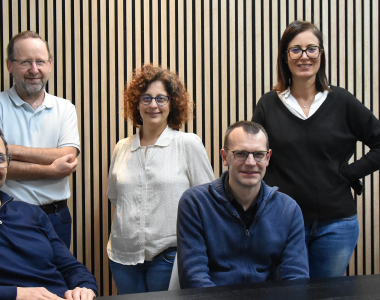News
ALPhANOV is now a partner in two new large european projects: LASHARE and NANO2FUN
Two new european projects involving ALPhANOV just started their actions. ALPhANOV's participation in these two projects, one of the largest launched in recent months, reflects the recognition of the excellence of the center's engineers in the fields of laser micro-machining and production of nanoparticles by laser ablation.
LASHARE involves 32 SMEs from across Europe and six of the most renowned laser research institutes. Main objective is to share knowledge on laser based equipment and its use addressing the whole value chain end to end. As a key success factor for European manufacturing, the transfer of innovative solutions from the laboratory into industrially robust products stands at the heart of the project. Lashare will also help the dissemination of the use of lasers systems towards SMEs which are often confronted with the challenge of creating new manufacturing processes, designed to facilitate efficient production.
Nanochemistry of molecular materials for 2-photon functional applications (Nano2Fun) is an Initial Training Network (ITN) Project funded by the European Commission through FP7-Marie Curie Actions. Nano2Fun’s main target is the education of a new generation of scientists for the development, via breakthrough research, of two technologically relevant applications, namely two-photon microscopy (2PM) and two-photon polymerization (2PP), with enormous applicative potential in bioimaging, biomedicine, and rapid prototyping techniques. Nano2Fun proposes a coordinated effort of 16 first-level and world-recognized research laboratories in the academic and private sectors, located in 10 different countries. The teams have well-established expertise in the diverse and complementary research fields of molecular and supramolecular synthesis, advanced optical spectroscopy and photophysics, theory and 2PM/2PP technological applications. Nano2Fun’s starting date is 1st September 2013, for a duration of 4 years. A total of 12 early-stage researchers (PhD) and 5 experienced researchers (Post Doc) will be trained.


